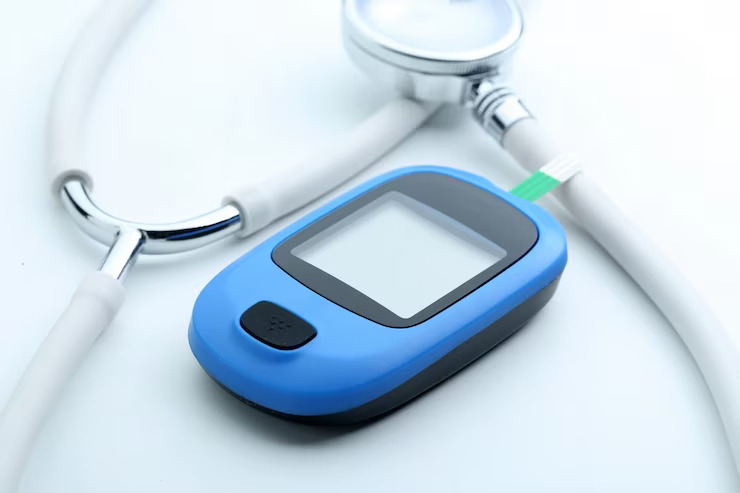Type 3 Diabetes: The Link Between High Blood Sugar and Brain Function

Diabetes is a metabolic disorder that affects millions of people worldwide. It is characterized by high blood sugar levels, which can lead to a variety of health complications, including cardiovascular disease, kidney failure, and nerve damage. However, recent research has uncovered a link between diabetes and another, lesser-known condition: Type 3 diabetes, also known as brain diabetes.
Type 3 diabetes is a condition that affects brain function and memory. It is believed to be caused by insulin resistance in the brain, which prevents the brain from using glucose properly. This can lead to memory loss, cognitive impairment, and even Alzheimer’s disease. In this article, we explore the causes, symptoms, and treatments for Type 3 diabetes.
Causes of Type 3 Diabetes
Insulin resistance in the brain is a cause of type 3 diabetes. The pancreas is a gland that produces the hormone insulin, which controls blood sugar levels. When the body becomes resistant to insulin, it cannot use glucose properly, leading to high blood sugar levels. This insulin resistance can occur in the brain as well as other parts of the body.
The exact cause of insulin resistance in the brain is not fully understood. However, researchers believe that it may be related to the accumulation of amyloid beta proteins in the brain. These proteins are a hallmark of Alzheimer’s disease and are thought to interfere with insulin signaling in the brain.
Risk Factors for Type 3 Diabetes
Type 3 diabetes is more common in people who have other forms of diabetes, such as Type 1 or Type 2 diabetes. Some researchers believe that this type of diabetes may be a late complication of these other forms of diabetes.
Other risk factors for this kind of diabetes include obesity, high blood pressure, and high cholesterol levels. These conditions can all contribute to insulin resistance and high blood sugar levels, increasing the risk of developing this diabetes.
Symptoms of Type 3 Diabetes
The symptoms of Type 3 diabetes can be subtle and may develop slowly over time. Some of the most common symptoms of this diabetes include:
- Memory loss
- Cognitive impairment
- Difficulty concentrating
- Confusion
- Depression
- Fatigue
- Headaches
- Insomnia
These symptoms can be mild at first but may become more severe over time. If you or someone you know is experiencing any of these symptoms, it is important to speak with a healthcare professional for an accurate diagnosis.
Diagnosis of Type 3 Diabetes
Diagnosing Type 3 diabetes can be challenging, as it shares many symptoms with Alzheimer’s disease and other forms of dementia. However, several tests can help to diagnose Type 3 diabetes, including:

- Blood glucose tests: These tests measure the level of glucose in the blood and can help to determine if high blood sugar levels are contributing to memory loss and cognitive impairment.
- Cognitive tests: These tests evaluate memory, attention, and other cognitive abilities and can help to determine if there is an underlying neurological condition.
- Brain imaging: MRI and PET scans can help to identify changes in the brain that may be contributing to memory loss and cognitive impairment.
Treatment for Type 3 Diabetes
There is no cure for Type 3 diabetes, but there are several treatment options that can help to manage symptoms and slow the progression of the disease. Some of the most effective treatments for Type 3 diabetes include:
- Lifestyle changes: Making healthy lifestyle choices, such as eating a balanced diet, getting regular exercise, and managing stress, can help to improve insulin sensitivity and reduce the risk of high blood sugar levels.
- Medications: Several medications can help to improve insulin sensitivity and lower blood sugar levels, including metformin, pioglitazone, and insulin therapy.
- Cognitive therapy: Cognitive therapy, such as cognitive behavioral therapy (CBT), can help to improve memory and cognitive function in people with this diabetes.
- Management of other health conditions: Managing other health conditions, such as high blood pressure and high cholesterol, can also help to reduce the risk of developing Type 3 diabetes and slow the progression of the disease.
Prevention
While there is no surefire way to prevent Type 3 diabetes, there are several steps that can be taken to reduce the risk of developing the condition. Some of the most effective prevention strategies for this diabetes include:

- Maintaining a healthy weight: Obesity is a major risk factor for Type 3 diabetes, so maintaining a healthy weight through diet and exercise can help to reduce the risk of developing the condition.
- Eating a balanced diet: Eating a diet that is rich in whole grains, fruits, and vegetables, and low in processed foods and added sugars, can help to improve insulin sensitivity and reduce the risk of high blood sugar levels.
- Getting regular exercise: Regular exercise can help to improve insulin sensitivity and reduce the risk of high blood sugar levels.
- Managing other health conditions: Managing other health conditions, such as high blood pressure and high cholesterol, can help to reduce the risk of developing this diabetes.
Conclusion
Type 3 diabetes is a condition that affects brain function and memory. It is caused by insulin resistance in the brain, which prevents the brain from using glucose properly. While there is no cure for brain diabetes, there are several treatment options that can help to manage symptoms . Also, slow the progression of the disease. Making healthy lifestyle choices, managing other health conditions, and getting regular medical check-ups can all help to reduce the risk of developing this diabetes. This also improve overall health. Also, If you or someone you know is experiencing memory loss, cognitive impairment, or other symptoms associated with Type 3 diabetes. It is important to speak with a healthcare professional for an accurate diagnosis and appropriate treatment.
Products That We Suggest for You
GlucoTrust – Blood Sugar Support
Through the utilization of wonderful nutrients, GlucoTrust promotes healthy blood sugar (glucose) levels. This mixture may also help you sleep better and longer. As well as lower hunger cravings, making it simpler to lose weight without having to keep to a bland diet.
To know more and purchase, Click Here








Comment to this Article
Comments that encourage respectful conversation are welcomed at AGP Health n Beauty. Stay on subject, please. Comments that are aggressively promotional of goods or services or that include personal attacks, vulgar language, or other forms of abuse will be deleted. Which remarks break our comment policy will be decided at our discretion. (Anonymous comments are accepted; just leave out your name in the comment box. Although necessary, your email address won't be posted with your comment.)